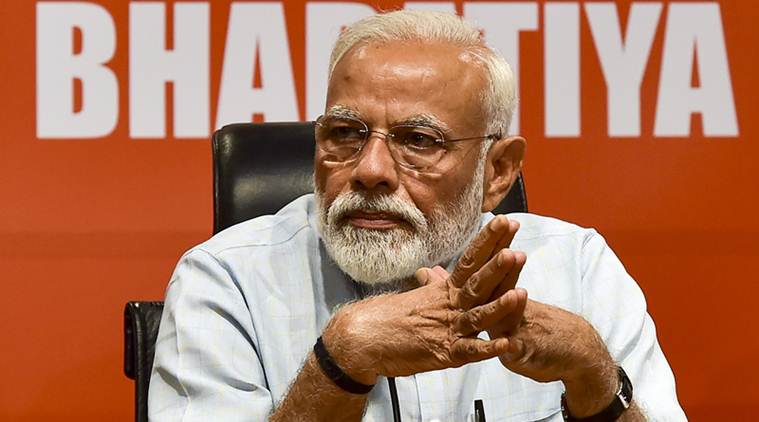
Prime Minister Narendra Modi’s education agenda for the first 100 days of his re-elected government includes unveiling of a new national education policy, a special drive to fill five lakh vacant faculty positions in higher education, and addition of 10 Institutions of Eminence (IoE) to the existing sanctioned strength of 20, The Indian Express has learnt.
The 100-day action plan for education under the new government, drafted by the Ministry of Human Resource Development and approved by the Prime Minister’s Office (PMO) recently, lists nine priorities for higher education. Many of the initiatives build on work done in the last term.
The Ministry’s 100-day plan has been prepared at the behest of the PMO, which had directed department heads of various ministries to prepare a ‘Plan of Action’ for the next government, taking into account promises made in the manifesto released by the BJP, even as Lok Sabha elections were underway.
Among promises HRD Ministry expects to deliver on till August:
New Education Policy: It took two committees and almost four years, but the new education policy report is ready and will be formally submitted on May 31, states the 100-day action plan. The ministry is aiming to invite public feedback on the document on June 1 and finalise the Cabinet note by July 1.
Five-year implementation plan: While the new education policy will shape education’s future in the document, the HRD Ministry will also unveil a five-year vision document covering themes such as access, quality, excellence, governance systems, research and innovation, employability, accreditation processes, use of technology for education, internationalisation and financing the higher education. HRD will seek the Finance Ministry’s approval in June and the Cabinet’s in the first week of July.
Institutions of Eminence: Although the NDA-II government conferred the IoE status only on six institutions against the promised 20, the ministry is keen to expand the sanctioned strength to 30. IoEs are expected to break into the international top 100 club of academic institutions. A cabinet note on the proposal will be moved in the second week of July.
Higher Education Commission of India: Although the plan to replace UGC with a new body was opposed by the academic community last year, the ministry will make a fresh attempt once the new cabinet is sworn in. The ministry’s timeline states that the draft Act will be discussed with the state governments in June and a final decision will be made in August.
New Accreditation System: Building on new accreditation regulations introduced by the Modi government in the first term, the ministry plans to decentralise the accreditation process by permitting private agencies, in addition to NAAC, to rate educational institutions. Applications will invited by the second week of July and agencies will be appointed by August 15.
National Research Fund Act: The ministry, along with Science and Technology Ministry, plans to set up an umbrella body, which will subsume the Science and Engineering Research Body, to fund all research activities in the country. The draft Act will be ready by month-end.
In addition to the above, the ministry will set up an online portal to monitor filling up of vacant teaching positions across state and central universities and private institutions.
 Techosta Where Tech Starts From
Techosta Where Tech Starts From